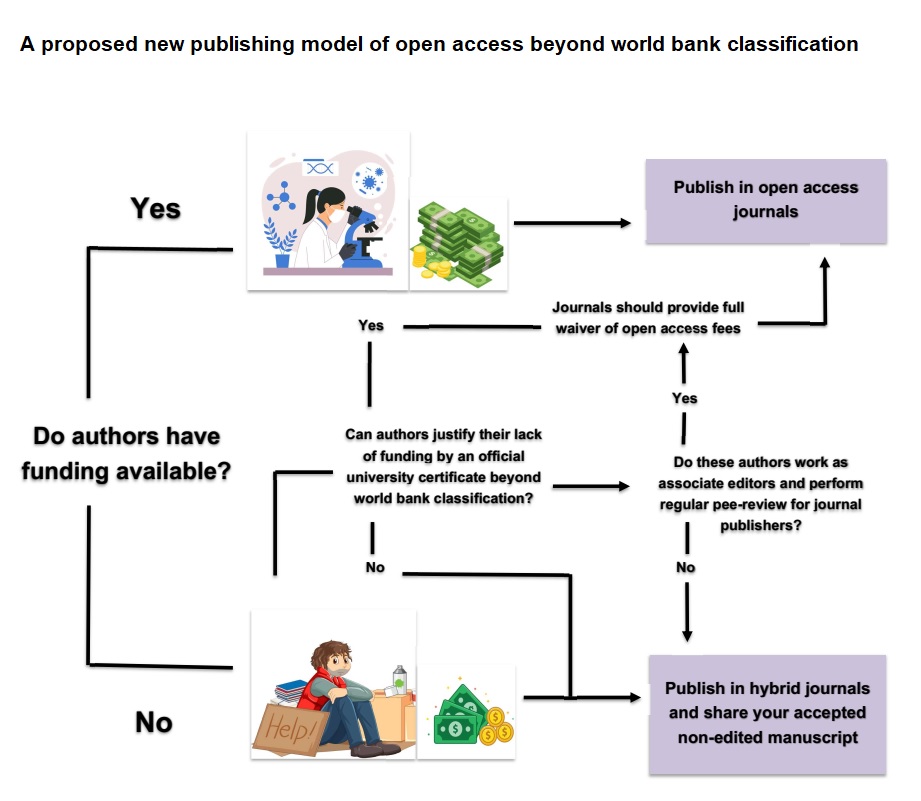Flexible Publishing Models for Authors from Under-Resourced Settings: A Call for a Radical Change
Published in Social Sciences
Publishing open access (OA) science costs a significant budget to countries and has caused important damages to scientists based in resource-constrained settings. Researchers from under-resourced countries find considerable barriers to publishing their research in academic journals, particularly with the shortage of journals with hybrid options. There is currently a marked and rapidly expanding mouvement of scientific publishers to transform their subscription-based journals into fully OA without providing solutions to unfunded authors from low- and middle-income countries,a for example. The existing gold OA journals use the world bank economic level criteria to deliver full or partial waivers to authors wishing to publish in their journals based on gross domestic product. However, this categorization used by academic journals to provide waivers policy should be abandoned as it does not take into account the funding available in academic institutions and also for independent research teams. Flexible and alternative solutions exist to substitute the world bank criteria (Figure 1).

Instead of these barriers, journals should consider full waivers for authors justifying a lack of funding by providing a certificate from their corresponding institutions. This is expected to support scientists with no funding without affecting inequalities to publish science based on OA models. More importantly, stakeholders should require publishers to tolerate sharing the accepted versions of articles in subscription-based journals without restrictions such as the embargo period. This will promisingly reduce the unaffordability of accessing science in countries with limited resources. Therefore, the gold OA publishing model should be reserved to research teams with available funding only.
Acknowledgment
We acknowledge the re-use of some vectors from https://www.vecteezy.com/
Conflicts of Interest
None


Please sign in or register for FREE
If you are a registered user on Research Communities by Springer Nature, please sign in